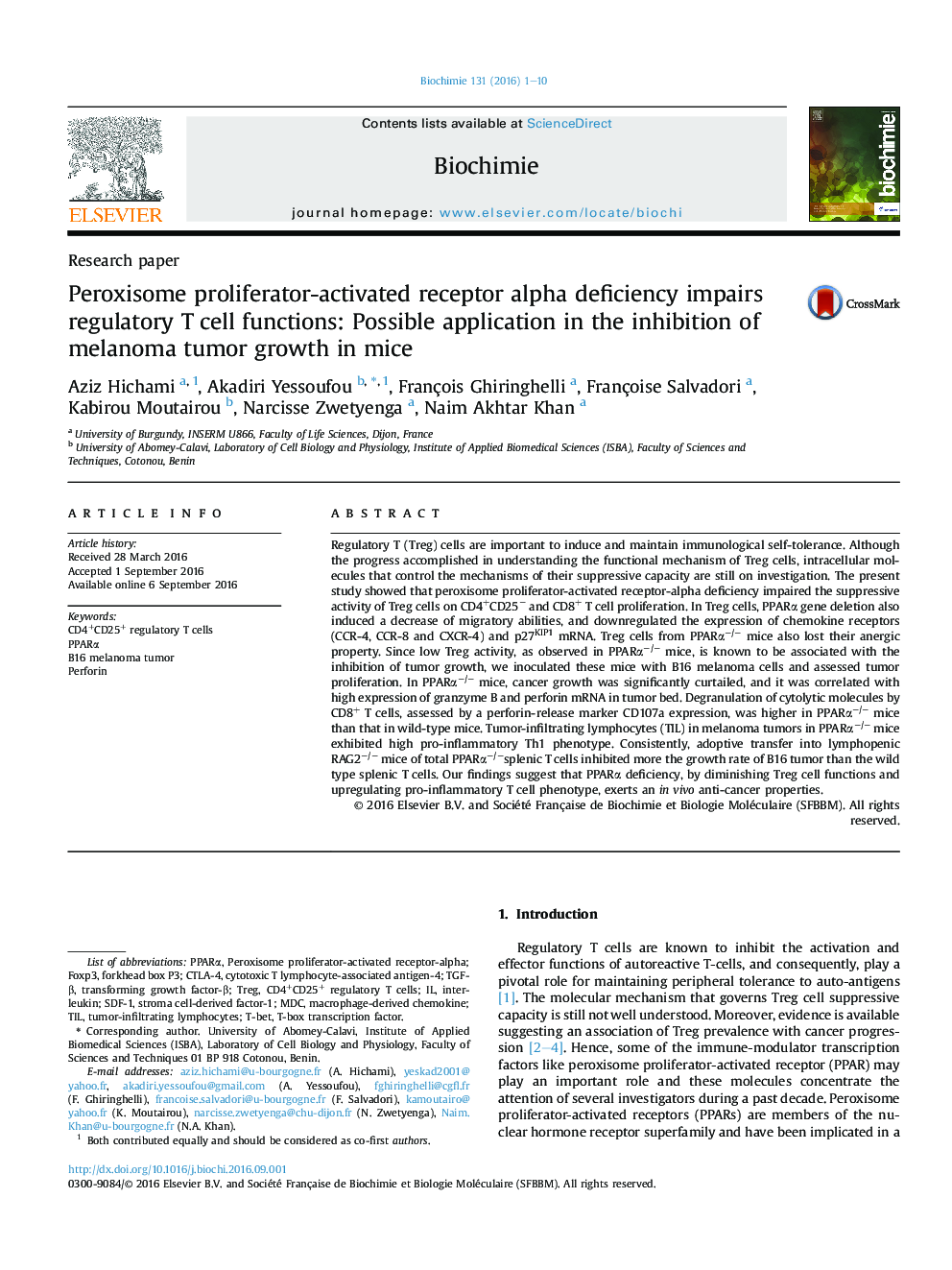| Article ID | Journal | Published Year | Pages | File Type |
|---|---|---|---|---|
| 5508987 | Biochimie | 2016 | 10 Pages |
â¢PPARα deficiency downregulated the suppressive activity of Treg cells.â¢PPARα deficiency decreased migratory ability of Treg cells toward chemokines.â¢The growth of B16 melanoma tumor was significantly reduced in PPARα-knockout mice.â¢PPARα-knockout mice exhibited upregulated Th1 phenotype in tumor-infiltrating lymphocytes.â¢Our study shows that PPARα antagonists might be anti-tumor agents.
Regulatory T (Treg) cells are important to induce and maintain immunological self-tolerance. Although the progress accomplished in understanding the functional mechanism of Treg cells, intracellular molecules that control the mechanisms of their suppressive capacity are still on investigation. The present study showed that peroxisome proliferator-activated receptor-alpha deficiency impaired the suppressive activity of Treg cells on CD4+CD25â and CD8+ T cell proliferation. In Treg cells, PPARα gene deletion also induced a decrease of migratory abilities, and downregulated the expression of chemokine receptors (CCR-4, CCR-8 and CXCR-4) and p27KIP1 mRNA. Treg cells from PPARαâ/â mice also lost their anergic property. Since low Treg activity, as observed in PPARαâ/â mice, is known to be associated with the inhibition of tumor growth, we inoculated these mice with B16 melanoma cells and assessed tumor proliferation. In PPARαâ/â mice, cancer growth was significantly curtailed, and it was correlated with high expression of granzyme B and perforin mRNA in tumor bed. Degranulation of cytolytic molecules by CD8+ T cells, assessed by a perforin-release marker CD107a expression, was higher in PPARαâ/â mice than that in wild-type mice. Tumor-infiltrating lymphocytes (TIL) in melanoma tumors in PPARαâ/â mice exhibited high pro-inflammatory Th1 phenotype. Consistently, adoptive transfer into lymphopenic RAG2â/â mice of total PPARαâ/âsplenic T cells inhibited more the growth rate of B16 tumor than the wild type splenic T cells. Our findings suggest that PPARα deficiency, by diminishing Treg cell functions and upregulating pro-inflammatory T cell phenotype, exerts an in vivo anti-cancer properties.
